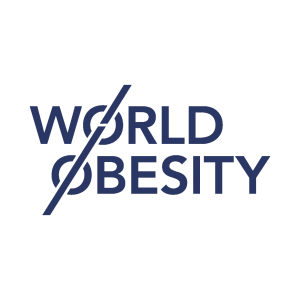Pregnancy & obesity: government guidelines & recommendations

Proper Maternal Nutrition during Pregnancy planning and Pregnancy: A Healthy Start in Life Recommendations for health care professionals – the experience from Latvia
"These recommendations were prepared within the Biennial Collaborative Agreement between the Ministry of Health of Latvia and the WHO Regional Office for Europe (2016–2017) on the basis of the recommendations of the WHO Regional Office for Europe in 2016 for good maternal nutrition". See more.
Good Maternal Nutrition: The best start in life
"This publication has been developed in three parts, providing: (i) a systematized review of the most recent evidence on maternal nutrition, the prevention of obesity and noncommunicable diseases; (ii) a review of existing national recommendations for nutrition, physical activity and weight gain during pregnancy in Member States of the WHO European Region; and (iii) possible opportunities for actions at national levels on how to promote nutrition and diet-related health throughout the life-course, ensure optimal fetal development and reduce the impact of morbidity and risk factors attributed to diet-related noncommunicable disease, by improving maternal nutritional health". See more.
Maternal and child nutrition
"This quality standard covers improving nutrition before, during and after pregnancy (up to a year after birth) for women who may become pregnant, and for babies and pre-school children. It particularly focuses on low-income and other disadvantaged households". See more.
Weight management before, during and after pregnancy
"This guideline covers how to assess and monitor body weight and how to prevent someone from becoming overweight or obese before, during and after pregnancy. The aim is help all women who have a baby to achieve and maintain a healthy weight by adopting a balanced diet and being physically active". See more.
Weight Gain During Pregnancy: Reexamining the Guidelines
"The new guidelines for GWG are formulated as a range for each category of prepregnancy BMI. This approach reflects the imprecision of the estimates on which the recommendations are based, the reality that good outcomes are achieved within a range of weight gains, and the many additional factors that may need to be considered for an individual woman". See more.
A Strategic Vision for Maternity Services in Wales
"This document sets out the results [the Minister for Health and Social Services wants] for women and their babies during pregnancy and childbirth. The effectiveness and quality of NHS maternity services clearly has a fundamental role to play in delivering these results. This document and other work going on at an all Wales level, therefore, also sets out [her] expectations of NHS Wales in transforming maternity services so that a real difference can be made to families in Wales." See more.
Management of Women with Obesity in Pregnancy
"While the majority of the recommendations within this guideline pertain to women with a BMI ≥30, some recommendations are specific to women in the higher classes of obesity only. Obese women with a BMI below the threshold specified may also benefit from the particular recommendation; however, the chosen BMI cut-offs reflect careful consideration given to the balance of medical intervention versus risk, differences in local prevalence of maternal obesity, and resource implications for local healthcare organisations. Local maternity services may wish to implement these standards for all women with maternal obesity after consideration of these issues.The recommendations cover interventions prior to conception, during and after pregnancy". See more.
The State of the World’s Children 2019. Children, Food and Nutrition: Growing well in a changing world
"At a time when one in three children under 5 is not getting the nutrition they need to grow well, The State of the World’s Children 2019 examines children’s malnutrition today. Communities increasingly face a triple burden of malnutrition: despite declines, 149 million children aged under 5 still suffer from stunting and almost 50 million from wasting; 340 million children suffer from the hidden hunger of deficiencies of vitamins and minerals; and rates of overweight are rising rapidly". See more.
Report of the Commission on Ending Childhood Obesity
"No single intervention can halt the rise of the growing obesity epidemic. Addressing childhood and adolescent obesity requires consideration of the environmental context and of three critical time periods in the life-course: preconception and pregnancy; infancy and early childhood; and older childhood and adolescence. In addition, it is important to treat children who are already obese, for their own well-being and that of their children". See more.


